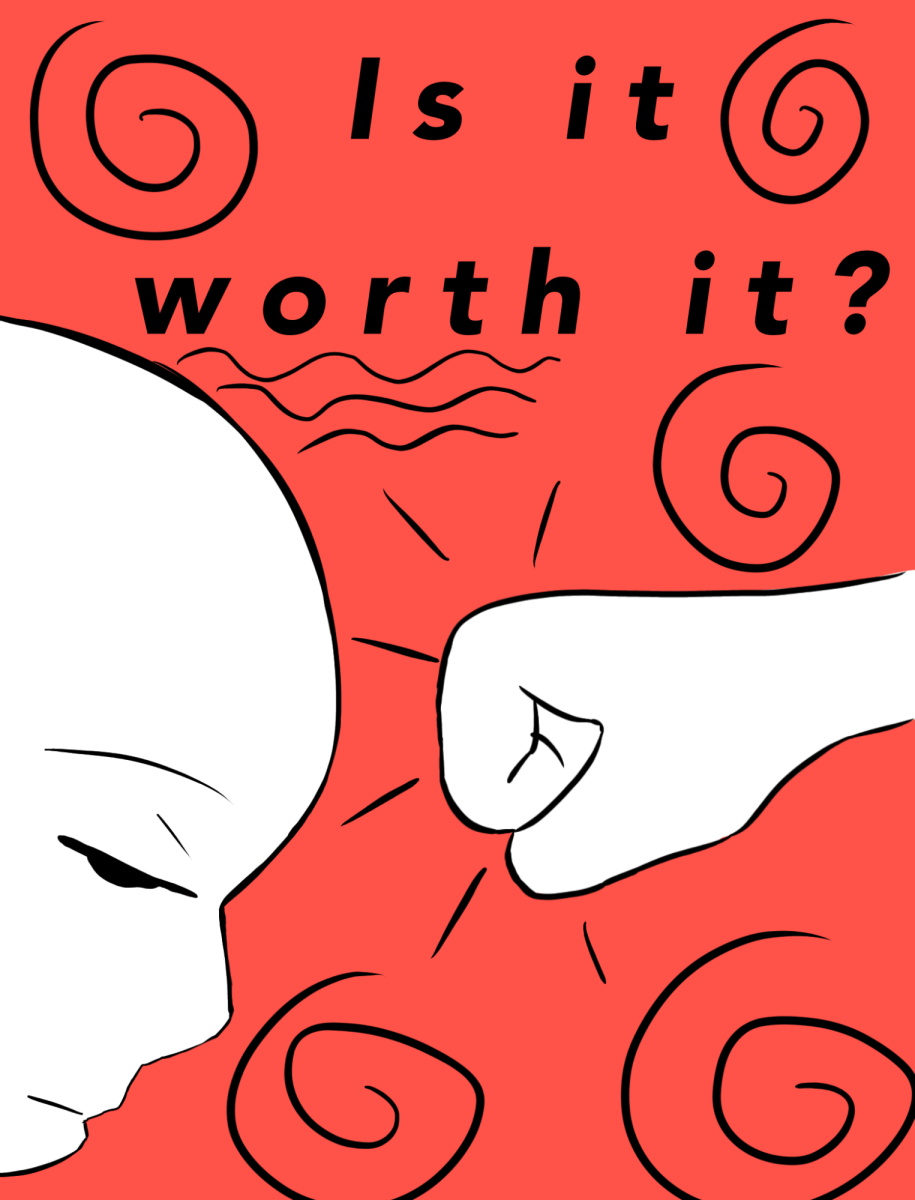A long-standing pillar and concrete base of our society is religion. From beliefs in powerful gods to the goodness of nature, there are a wide variety of religions and practices followed by people around the world. Spirituality is an important aspect in many people’s lives, often serving as a guide map for life. There are obvious benefits that can come from being religious, but good things do not always come without downsides.
When Kaneland students were asked about what they gain most from religion, the answers “guidance” and “community” tied at 23.5% of the 82 voluntary respondents. There are a variety of reasons to explain why people seek out religion. A majority of people end up being religious as a result of their upbringing. Religion is passed down through generational stories, artifacts, claims and events. Other times, people seek religion in search of something fulfilling.
Humans are the most intellectually advanced known species on Earth, but we do not agree on the most basic fact of how we came to be. Death is a very common fear to have, as we have multiple ideas of what may happen once our bodies succumb to the consequence of possessing life. Finding answers to questions like these, however uncertain they may be, is something many seek.
According to the Institute for Public Relations, the vast majority of U.S. citizens identify with Christian denominations such as Catholicism, Protestantism and Jehovah’s Witnesses, which can have more denominations within. After Christian denominations follow those who do not affiliate with any religious groups. This national data is consistent with Kaneland responses, with 65.5% of respondents identifying with Christianity in some way.
Despite responses to the poll containing a small part of Kaneland’s student population, many spiritual beliefs were reported. Agnosticism, Atheism, Christianity, Catholicism, Lutheranism, Anglicanism, Islam, Paganism, Polytheism, Satanism and other spiritual beliefs were all reported by at least one student.
While followers of different religions may look up to different powers or ideals, the agreed upon benefits of being a part of a group remain similar. All poll respondents who answered the question, “What is the most beneficial/important thing about being a part of a religion/spiritual group to you?” answered with either comfort, guidance, community, a feeling of fulfillment or having a safe place or purpose. Respondents were provided with the option “other,” but all answers fell under these six categories.
Religions hold many shared benefits that can be gained from faith, yet they often clash.
“[Religions] have brought a lot of harm and war. Some people’s beliefs in it become too harsh, and it causes violence to other beliefs,” freshman Rowan Eubanks said. They are an Agnostic Atheist; they don’t believe in any specific god, but they believe there is a form of deity.
Throughout history, there have been many conflicts based on differences in religious beliefs. In the 16th century, Protestant Reformation took place in Europe. A Protestant-led religious revolution occurred against the Roman Catholic Church. As the U.S. was being founded, many Europeans sought religious freedom in America. Protestants, Puritans and Anglicans were just a few religions found in early colonies.
In modern day, the argument over abortion rights has largely involved Christian beliefs. Congresspeople and citizens will often refer to their faith-based beliefs to support the laws on keeping a fetus viable in pregnancy. Religion is often a template that people base their lives on, so decisions and opinions will often stem from that.
“In my family, being Christian and Catholic is very important, so me being a different religion messed up my family dynamics,” Eubanks said. Historically, acceptance across religions has not been very positive, and that remains true today. Despite being raised in a Christian family, Eubanks feels more freedom identifying with Agnosticism and Atheism.
Even though religion can bring hate towards others, it can also improve people.
“[Being religious] makes me a better person in general. It makes me more kind, makes me want to respect people more, talk to people more, spread positivity,” said junior Xander Figueroa, one of the presidents of Kaneland’s Student Impact group, which is a Christian club that aims to spread the gospel.
Complementary to Figueroa’s statement, fellow Student Impact president and junior Madison Zehelein acknowledges some of her faults and how religion helps her grow.
“The amount of stuff that I know I’m doing that’s not great, I’m working on it, and God is helping me through it,” Zehelein said.
As with most things in life, there is nuance to religion. Expectations can lead to high standards held inwardly or shown externally.
“Subconsciously, when you don’t do a good job at being a Christian, you beat yourself up for it because there is this creator who gives you what you need. And [he] loves you, but you just screw him over sometimes,” Figueroa said.
There can be a lot of pressure surrounding religion; religions such as Christianity and Mormonism have detailed consequences, such as suffering after death, if practices are not followed. Pressure to be similar to others often contributes to how humans interact, so social status can alter beliefs.
“When I would go to church with my grandma, everyone else would raise their hands up and they would feel God in a way, his presence,” freshman Brooklyn Converse said. “I just never felt that, and I’m just standing there like I’m not feeling the energy everyone else is.”
Previously, Converse has explored the beliefs associated with witchcraft.
“Once COVID hit, I kind of stopped. I went back to saying, ‘I believe in [the Christian] God,” Converse said.
Converse is back to exploring spiritual beliefs related to crystals and nature, but she points out that if you are not a part of a widely accepted religion, “Automatic hatred toward you and automatic bullying” can occur.
Even with the negative connotations that can come with less acknowledged beliefs, “[My spiritual beliefs] give me joy that something is out there. Even if there isn’t, the fact that I am in control of what I do and what I perform comforts me,” Converse said.
Similar to Converse, senior Ann Dado “was largely disconnected from the concept of ‘God,’” they said in an email interview. In a differing stance to Converse, they were raised non-religious but are “slowly introducing [themselves] to the practice of Hellenism…[and an] on-off interest in Wicca,” which relates to mythological beliefs such as Greek gods and goddesses.
“I feel like spiritual and religious beliefs, such as divine intervention or connection, are comforting,” Dado said. “Setting up a practice, I feel, will be positive for my mind.”
Like Eubanks and Converse, Dado shares similar thoughts regarding the negative side of religion.
“Conformity, as a whole and in my opinion, can be largely negative,” Dado said
Comfort, stability, community and other positives can come from religious or spiritual beliefs, but there are potential drawbacks to the positives. Resentment towards others is a persistent issue within and between faiths. There are countless examples of conflicts incited over beliefs, but there are also plenty of examples of faith helping people.
Regardless of how a person is raised, everyone has their own thoughts about religion. It is important to realize, though, that religious beliefs can affect people in both positve and negative ways.









